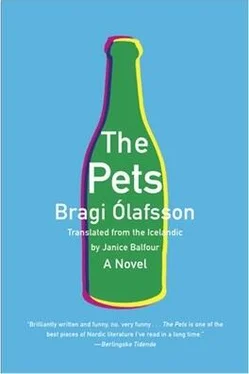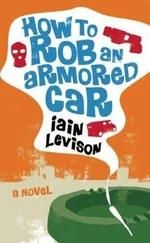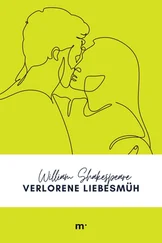Bragi Ólafsson - Pets
Здесь есть возможность читать онлайн «Bragi Ólafsson - Pets» весь текст электронной книги совершенно бесплатно (целиком полную версию без сокращений). В некоторых случаях можно слушать аудио, скачать через торрент в формате fb2 и присутствует краткое содержание. Год выпуска: 2008, Издательство: Open Letter, Жанр: Современная проза, на английском языке. Описание произведения, (предисловие) а так же отзывы посетителей доступны на портале библиотеки ЛибКат.
- Название:Pets
- Автор:
- Издательство:Open Letter
- Жанр:
- Год:2008
- ISBN:нет данных
- Рейтинг книги:5 / 5. Голосов: 1
-
Избранное:Добавить в избранное
- Отзывы:
-
Ваша оценка:
- 100
- 1
- 2
- 3
- 4
- 5
Pets: краткое содержание, описание и аннотация
Предлагаем к чтению аннотацию, описание, краткое содержание или предисловие (зависит от того, что написал сам автор книги «Pets»). Если вы не нашли необходимую информацию о книге — напишите в комментариях, мы постараемся отыскать её.
Pets — читать онлайн бесплатно полную книгу (весь текст) целиком
Ниже представлен текст книги, разбитый по страницам. Система сохранения места последней прочитанной страницы, позволяет с удобством читать онлайн бесплатно книгу «Pets», без необходимости каждый раз заново искать на чём Вы остановились. Поставьте закладку, и сможете в любой момент перейти на страницу, на которой закончили чтение.
Интервал:
Закладка:
When the old woman left the shop the doorbell rang, warning the customers to expect a cold gust of air. He opened his eyes and sat up straight in the armchair. The shop assistant had moved behind the counter; she was fiddling with a copper-colored standard lamp that had a light red shade. He got up from the chair, walked over to the counter, and said good morning. The woman smiled in a friendly manner and nodded. Carefully, he took the box, which contained the sailing ship, out of the plastic bag and, as he put it down on the table, said he would like to show her something. She asked what it was, and he turned the box round so that she could see the beautifully carved ship; her face lit up. He told her that it was from the middle of the nineteenth century and she replied that she could imagine that, without knowing anything about it of course. He put his hand under it and lifted it up so that she could see it better. When she asked where he had gotten hold of it he answered: “in England.” He had bought it a few years ago in London for two thousand pounds. She nodded again and looked at him closely, as if she was trying to fathom why he was showing her the ship. If that was the case, the answer came immediately: was she interested in buying it from him, he would let her have it at a very reasonable price. She smiled and when he said that he would let her have the ship for a hundred and fifty thousand kronur, she laughed in a rather embarrassed manner. She wasn’t so sure about that, they weren’t buying much these days, but she was willing to let her husband have a look at it, he was the one who evaluated the goods here, she didn’t have any say in such matters. Then he said that there was no doubt to be had about this object. If he let them have it for a hundred and fifty thousand he was almost giving it away. The woman said that she wasn’t sure if there was a market for such objects. He interrupted her and said with a smile that he wasn’t intending to sell the ship, he was going to give it to a good friend of his. He had only been curious to find out what he could get for it.
He burped. It seemed as if he had accidentally let the burp slip out; he put his hand in front of his mouth and mumbled a muffled apology into the palm of his hand. Suddenly there was a very clear change in the woman’s manner. It appeared that something more serious than a burp had made the man seem highly suspicious. Her face showed how nervous she had become. The corner of her mouth twitched and she backed away. While he put the ship back inside the bag and thanked the woman, she glanced around the shop, like she was looking for the couple with the child. She seemed very relieved when he made his way to the door. He looked out of the window in both directions before stepping out into the street, then he took hold of the door and swung it slightly back and forth to make the bell ring. The shop assistant gave him a forced smile when he waved goodbye and left.
He walked up the main street and didn’t stop until he reached a restaurant close to the bus station, Hlemmur. He glanced quickly at the menu in the window and then went inside. There were dark wood paneled cubicles on the left hand side that reminded one of an American country bar but many other details indicated that the place was run by Asians. To the right, near the wall, was a large dining-room table with a glass plate — it seemed to have been meticulously carved in an eastern fashion — and there were two short Asian girls standing at the counter. He walked up to them and asked, in English, if he could use the phone. They answered him in Icelandic: there was a pay phone further in, just before you come to the toilets. One of them gave him change for the phone while the other poured out the double vodka he had ordered as he asked for the telephone directory. He went over to the public telephone and searched in the directory. He dialed the number and waited but got no reply. Then he looked in the directory again for another number. While he flicked roughly through the pages he said the name Halldor out loud and repeated it several times under his breath, adding the surname Emilsson. He took a good sip out of the vodka glass and, just when he seemed to have found the number, he swallowed, which made him grimace and shudder. This time someone answered.
He asked if that was the number belonging to the parents of Emil S. Halldorsson and it obviously was because he stuck his thumb up in the air and moved his lips as if he was saying yes. Was this his mother then? He told her that he was an old school friend of Emil and that Emil had given him their number and had suggested he call them if he wasn’t at home. Did she know if her son was in town? It was important that he contacted him, preferably today. He was abroad? Coming home today? Now, later on? He should land around five o’clock? Did she think there would be any delay? Most probably not. No doubt Emil had completely forgotten to tell him that he would be going abroad, he had spoken to him several weeks ago. He lived abroad himself and they weren’t continually in contact. What, he went off when he won the lottery? He hadn’t told him that either. He asked if he had won a fortune and smiled when Emil’s mother answered. Good for him, going off; one didn’t often get money like that.
He thanked Emil’s mother and ended the conversation. Later on . He repeated the phrase to himself and replaced the receiver. He picked up his glass, tipped it up slowly to his lips, as if he hadn’t quite decided whether he should drink it, and gulped down what was left without screwing up his face.
15
I wasn’t particularly surprised to see the couple from the duty-free store get on the bus. I waited outside on the pavement with the blonde woman until the driver announced that he was ready to leave. We smoked another cigarette together and she told me that the customs officials had searched her. They had carried out quite a thorough examination, she said. To me, she didn’t look the type that customs officials would have reason to pick on. She was wearing a neat black leather jacket on top of her T-shirt — she must have bought the jacket on this trip — and she had wrapped herself in a thick, black scarf.
I was just about to tell her that we had met before (though we didn’t really meet), about fifteen years ago, but changed my mind. I would tell her later, if we ever got to know each other better, which I really hoped we would.
The driver had seen to all the baggage and had locked the luggage compartment. We put out our cigarettes and climbed into the bus. I didn’t expect to see Armann in there — I hadn’t noticed him come through customs — but I looked around for him before I sat down. He would obviously have to wait for the next bus; somehow I couldn’t imagine that he would be picked up in a private car.
It seemed natural that we sit together, the blonde one and I; the only seats that were vacant were near the front of the bus.
“My name is Emil,” I said when we had sat down. I thought it was about time I introduced myself.
“Greta,” she replied, combing her hair back with her hands and tying it into a knot. “What were you doing in London?”
I told her that I had been shopping.
“For some company?”
While I explained to her what kind of shopping trip I had been on, I took two cans of beer out of my duty-free bag and offered her one. I was pleasantly surprised when she said yes.
“But what were you doing?” I asked.
“Smuggling dope,” she said with a grin. “No, I was just visiting my sister who lives in London.”
I hadn’t noticed how beautiful her smile was and how full her lips were when she smiled at me on the plane. Despite the fact that fifteen years had passed, I thought her face seemed younger now, and I secretly tried to imagine her with ruffled hair, as she was when she emerged from the children’s bedroom. There was something very sexy about her eyes, as if she was drowsy or, at least, not very wide awake, which, on the other hand, was a contradiction, because she seemed to me to be very smart and clearly had a sense of humor.
Читать дальшеИнтервал:
Закладка:
Похожие книги на «Pets»
Представляем Вашему вниманию похожие книги на «Pets» списком для выбора. Мы отобрали схожую по названию и смыслу литературу в надежде предоставить читателям больше вариантов отыскать новые, интересные, ещё непрочитанные произведения.
Обсуждение, отзывы о книге «Pets» и просто собственные мнения читателей. Оставьте ваши комментарии, напишите, что Вы думаете о произведении, его смысле или главных героях. Укажите что конкретно понравилось, а что нет, и почему Вы так считаете.











